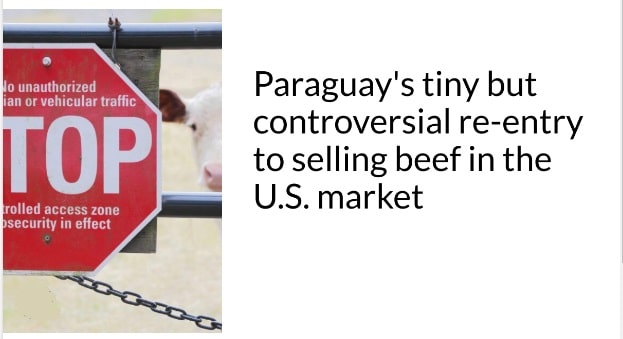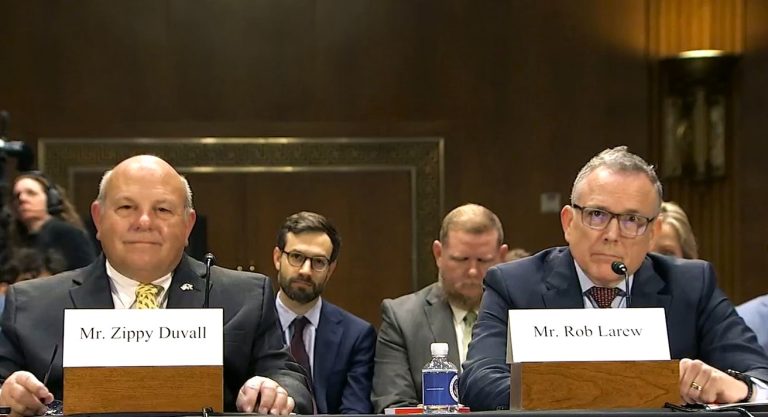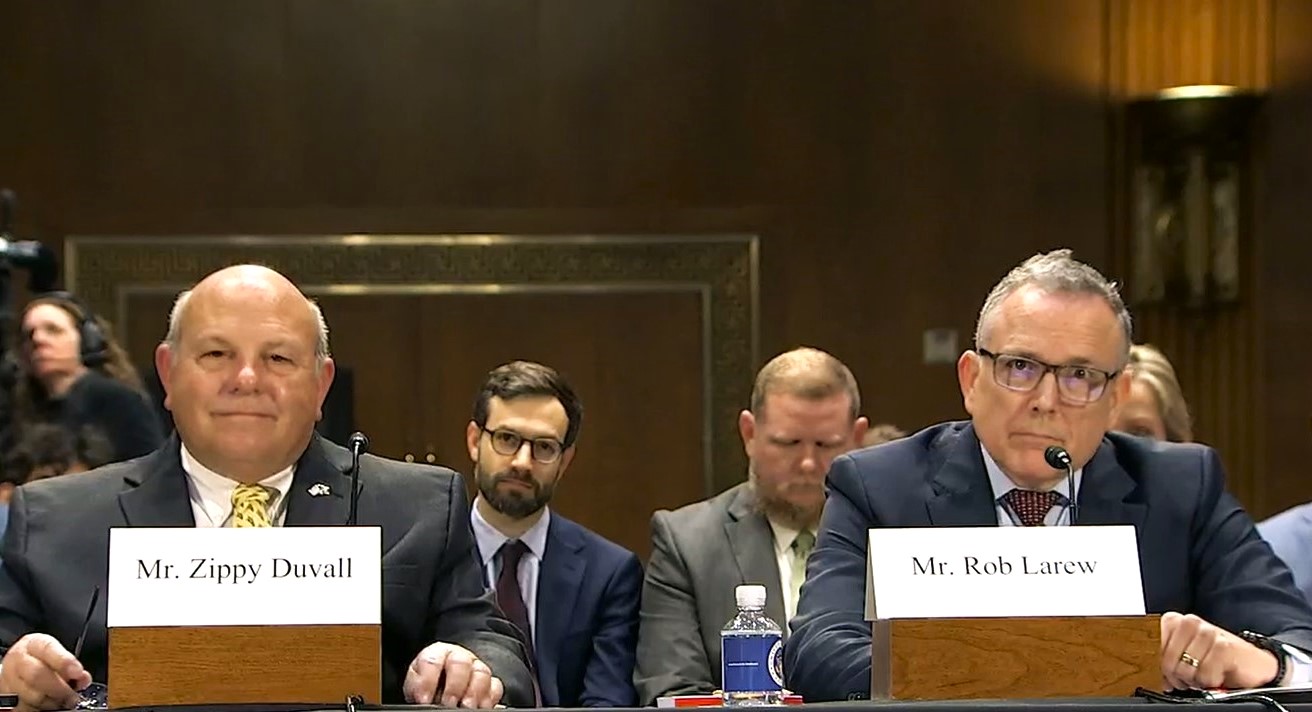WASHINGTON, D.C. – Claiming the use of outdated information, cattle organizations are firing back at USDA’s decision to allow the importation of fresh beef from Paraguay.
In the final rule, fresh (chilled or frozen) deboned beef will be eligible for import, and Animal and Plant Health Inspection Service (APHIS) expect beef imports to fewer than 6500 metric tons annually, in part due to a quota Paraguay faces on beef exports to the United States.
The National Cattlemen’s Beef Association (NCBA) strongly opposed the decision by USDA. NCBA has repeatedly raised concerns with USDA over Paraguay’s history of foot-and-mouth disease (FMD) and the information used to justify Paraguay’s access to the U.S. market, which NCBA says is outdated. NCBA is concerned that USDA’s failure to use information from recent site visits in the risk assessment may pose great risk to the safety of the U.S. cattle herd.
“USDA based their decision to allow beef imports from Paraguay on a deeply flawed risk assessment that uses old data from site visits that were conducted more than nine years ago. Paraguay has a history of FMD outbreaks, and it is unclear if their inspection system can provide an equivalent level of safety for animal health to prevent a possible FMD outbreak on U.S. soil,” said NCBA Executive Director of Government Affairs Kent Bacus. “Paraguay heavily relies on private sector funding for most of its FMD mitigation measures, and USDA did not consider the risk associated with Paraguay’s economic downturn over the last several years.”
But in a risk analysis conducted by APHIS, it concluded that fresh beef can be imported safely from Paraguay under certain conditions. These conditions include verifying that:
- Foot-and-mouth disease (FMD) has not been diagnosed in the exporting region in the past 12 months,
- The meat comes from premises where FMD has not been present during the lifetime of any of the animals, and
- The animals were inspected before and after death, among others.
USDA says these measures are consistent with the World Trade Organization’s Agreement on the Application of Sanitary and Phytosanitary Measures, which governs, among other things, trade in animal products.
NCBA filed comments earlier this year calling on USDA to continue blocking fresh beef imports from Paraguay due to Paraguay’s history of foot-and-mouth disease (FMD) and the outdated information from site visits in 2008 and 2014 that were used to justify Paraguay’s access. NCBA also raised concerns about Paraguay’s ability to fund and administer FMD safeguards and called into question the security of the borders they share with other countries including Brazil.
NCBA urged USDA to continue the ban on Paraguayan beef imports until a thorough review can be conducted and U.S. cattle producers are assured Paraguay is able to provide an equivalent level of safety for U.S. consumers and livestock.
“Gaining beef access to the U.S. market has been the top priority for Paraguay in multiple rounds of trade discussions,” said Bacus. “Unfortunately, this is not the first time that a foreign country’s beef access to the United States was a pre-determined outcome and used as a bargaining tool for other U.S. interests. The dismissal of legitimate concerns from U.S. cattle producers is unacceptable and USDA should halt this unscientific, unsafe rulemaking.”
He added, “While winning friends and allies in South America may be part of the long-term interests of U.S. diplomacy, it should not be done on the backs of U.S. cattle producers or by putting at risk the health and livelihood of the safest and most efficient cattle and beef production system in the world.”













